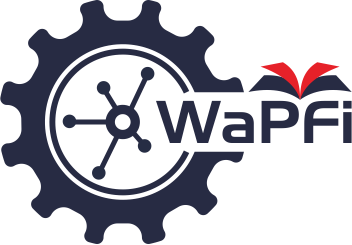Unveiling the problem based learning approach in developing interactive digital physics modules (2014-2024): A bibliometric analysis
Abstract
This study aimed to explore the identification of research topics regarding interactive digital physics modules and Problem Based Learning (PBL) by analyzing 541 articles from the Scopus database published from 2014 to 2024. The primary objective was to reveal significant trends in the development of interactive digital physics modules based on PBL through bibliometric analysis using Bibliometrix R software. The results indicated a notable increase in annual publications, with China leading in citations (614), followed by the United States of America (293) and Korea (131). Additionally, 56 countries contributed to the research, with China dominating corresponding authorship with 181 articles. Key affiliations included the University of Limerick and Tsinghua University, while most relevant sources included Lecture Notes of The Institute for Computer Sciences, ACM International Conference Proceeding Series, and ASEE Annual Conference and Exposition. The analysis of keywords revealed a strong emphasis on terms related to e-learning, students, and teaching, highlighting the integration of technology and pedagogy in education. Overall, the findings provide a comprehensive overview of global research trends in interactive digital physics modules and PBL, suggesting opportunities for further innovative developments in physics education.
Downloads
References
Ardiansyah, A. I., Putra, A. K., & Nikitina, N. (2024). Investigating Problem-Based Learning Model’s Impact on High School Student’s Critical Thinking Skills in Environmental Conservation Context. Jambura Geo Education Journal, 5(2), 87-103.
Arifin, I., Zurweni, & Habibi, A. (2024). Development of Interactive E-modules for High School Physics Learning Based on Problem Based Learning (PBL). Indonesian Journal of Educational Development (IJED), 5(1), 42-55.
Aziz, N. R., Wibowo, F. C., & Nasbey, H. (2024). STEAM in Physics Learning Over The Last 5 Years: Bibliometric analysis. AIP Conference Proceedings, 3116(1).
Baas, J., Schotten, M., Plume, A., Côté, G., & Karimi, R. (2020). Scopus as a curated, high-quality bibliometric data source for academic research in quantitative science studies. Quantitative Science Studies, 1(1), 377-386.
Badmus, O. T., & Jita, L. C. (2024). Physics Difficulty and Problem-solving: Exploring the Role of Mathematics and Mathematical Symbols. Interdisciplinary Journal of Education Research, 6, 1-14.
Banu, J. H., R, R., M, S., & R, G. M. (2020). IoT based Cloud Integrated Smart Classroom for smart and a sustainable Campus. Procedia Computer Science, 172, 77-81.
Caputo, A., & Kargina, M. (2022). A User-Friendly Method to Merge Scopus and Web of Science Data During Bibliometric Analysis. Journal of Marketing Analytics, 10(2), 1-7.
Carney, M., Gedajlovic, E. R., Heugens, P. P., Essen, M. V., & Oosterhout, J. (. (2011). Business Group Affiliation, Performance, Context, and Strategy: A Meta-analysis. Academy of Management Journal, 54(3), 437-460.
Chis, A. E., Moldovan, A.-N., Murphy, L., Pathak, P., & Muntean, C. H. (2018). Investigating Flipped Classroom and Problem-based Learning in a Programming Module for Computing Conversion Course. Educational Technology & Society, 21(4), 232-247.
Dayarathna, V., Karam, S., Jaradat, R. M., & Hamilton, M. (2020). Assessment of the efficacy and effectiveness of virtual reality teaching module: A gender-based comparison. International Journal of Engineering Education, 36(6).
El Sabagh, H. A. (2021). Adaptive E Learning Environment Based on Learning Styles and Its Impact on Development Students’ Engagement. International Journal of Educational Technology in Higer Education, 18(53).
El-Seoud, M. S., Taj-Eddin, I. A., Seddiek, N., El-Khouly, M. M., & Nosseir, A. (2014). E-Learning and Students' Motivation: A Research Study on the Effect of E-Learning on Higher Education. International Journal of Emerging Technologies in Learning (iJET), 9(4), 20-26.
Falloon, G. (2024). Investigating Pedagogical, Technological and School Factors Underpinning Effective ‘Critical Thinking Curricula’ in K-6 Education. Thinking Skills and Creativity, 51, 1-16.
Fung, K. (2015). Otolaryngology-Head and Neck Surgery in Undergraduate Medical Education: Advances and Innovations. The Laryngoscope, 125(S2).
Ghaleb, B. D. (2024). Effect of Exam-Focused and Teacher-Centered Education Systems on Students' Cognitive and Psychological Competencies. International Journal of Multidisciplinary Approach Research and Science, 2(2), 611-631.
Hidayati, N., Zubaidah, S., & Amnah, S. (2023). Effective Learning Model Bases Problem Based Learning and Digital Mind Maps to Improve Student’s Collaboration Skills. International Journal of Evaluation and Research in Education (IJERE), 12(3), 1307-1314.
Hussein, A. M., & Al-Chalabi, H. K. (2020). Pedagogical Agents in an Adaptive E-learning System. Science and Research Journal, 3(1), 24‐30.
Jumriani. (2024). Strategi Pembelajaran Berbasis Masalah. Madani: Jurnal Ilmiah Multidisiplin, 2(3), 254-258.
Koerfer, E., & Gregorcic, B. (2024). Exploring Student Reasoning in Statistical Mechanics: Identifying Challenges in Problem-Solving Groups. Physical Review Physics Education Research, 20(1), 1-23.
Kurilovas, E., Zilinskiene, I., & Dagiene, V. (2014). Recommending suitable learning scenarios according to learners’ preferences: An improved swarm based approach. Computers in Human Behavior, 550-557.
Laar, E. v., Deursen, A. J., Dijk, J. A., & Haan, J. d. (2020). Determinants of 21st-Century Skills and 21st-Century Digital Skills for Workers: A Systematic Literature Review. SAGE Open, 10(1), 1-14.
Larasati, N., & Rindaningsih, I. (2024). The Quality Improvement of Education: Implementation, Development, and Human Resources. International Journal Multidisciplinary (IJMI), 1(1), 68-75.
Lei, F., Yang, Z., Yang, Y., & Que, X. (2020). Smart Mode Selection Using Online Reinforcement Learning for VR Broadband Broadcasting in D2D Assisted 5G HetNets. IEEE Transactions on Broadcasting, 99, 1-12.
López-Jiménez, P. A., Gil-Duque, G. M., & Garces-Gomez, Y. A. (2021). Real Problem Solving as a Teaching Strategy for Physics Education: Case study. Jurnal Pendidikan IPA Indonesia, 10(1), 15-23.
Meyputri, C. U., Budi, A. S., & Wibowo, F. C. (2024). Digital Modul Konsep Energi Terbarukan Berbasis Microsoft Sway. Prosiding Seminar Nasional Fisika, 12.
Ozer, F., & Dogan, N. (2024). Improving Middle School Students’ Understanding about Scientific Inquiry through Creative Problem-Solving Modules enriched with the History of Science. Education and Science, 49(217), 159-200.
Pacaci, C., Ustun, U., & Ozdemir, O. F. (2023). Effectiveness of Conceptual Change Strategies in Science Education: A Meta-Analysis. Journal of Research in Science Teaching, 61(6), 1263-1325.
Passas, I. (2024). Bibliometric Analysis: The Main Steps. Encyclopedia, 4, 1014-1025.
Pedro, A., Le, Q. T., & Park, C. (2016). Framework for Integrating Safety into Construction Methods Education through Interactive Virtual Reality. Journal of Professional Issues in Engineering Education and Practice, 142(2).
Peine, A., Kabino, K., & Spreckelsen, C. (2016). Self-directed learning can outperform direct instruction in the course of a modern German medical curriculum - Results of a mixed methods trial. BMC Medical Education, 16(1).
Rahimi, R. A., & Oh, G. S. (2024). Rethinking the role of educators in the 21st century: navigating globalization, technology, and pandemics. Journal of Marketing Analytics, 12(2), 1-16.
Rahmawati, R., Santoso, H., & Asih, T. (2022). Pengembangan E-Modul Berbasis Problem Based Learning Disertai Nilai Karakter Pada Materi Ekosistem Kelas X SMA. Seminar Nasional Pendidikan IPA (SNPB).
Rojas-Sánchez, M. A., Palos-Sánchez, P. R., & Folgado-Fernández, J. A. (2023). Systematic Literature Review and Bibliometric Analysis on Virtual Reality and Education. Education and Information Technologies, 28(1), 155-192.
Sankar, E., & Benjamin, A. E. (2023). Studying the Student’s Perceptions of Engagement and Problem-Solving Skills for Academic Achievement in Chemistry at The Higher Secondary Level. Education and Information Technologies, 29(7), 1-22.
Serrano, D. R., Dea-Ayuela, M. A., Gonzalez-Burgos, E., Serrano-Gil, A., & Lalatsa, A. (2019). Technology‐enhanced learning in higher education: How to enhance student engagement through blended learning. European Journal of Education Research, Development, and Policy, 54(2), 1-14.
Setyabudi, R., Wibowo, F. C., & Susanti, D. (2024). Interactive Digital Module Physics (IDMP) Based on Problem Based Learning (PBL) on The Concept of Work and Energy. Prosiding Seminar Nasional Fisika, 12, 159-166.
Wibowo, F. C., Darman, D. R., Guntara, Y., & Nulhakim, L. (2024). Unveil Creative Thinking in The Physics Education: Bibliometric Analysis and Literature Review. Electronic Physics Informatics International Conference (EPIIC) 2023.
Widya, Maielfi, D., & Alfiyandri. (2021). Need Analysis for Physics E-Module Based on Creative Problem Solving Integrated 21st Century Skills. Journal of Physics: Conference Series, 1940.
Zhou, J., Wang, P., & Sun, H. (2020). Discriminative and Robust Online Learning for Siamese Visual Tracking. Proceedings of the AAAI Conference on Artificial Intelligence, 34(07), 13017-13024.
Ziervogel, G., Enqvist, J., Metelerkamp, L., & Breda, J. v. (2021). Supporting Transformative Climate Adaptation: Community-Level Capacity Building and Knowledge Co-Creation in South Africa. Climate Policy, 22(5), 607–622.






